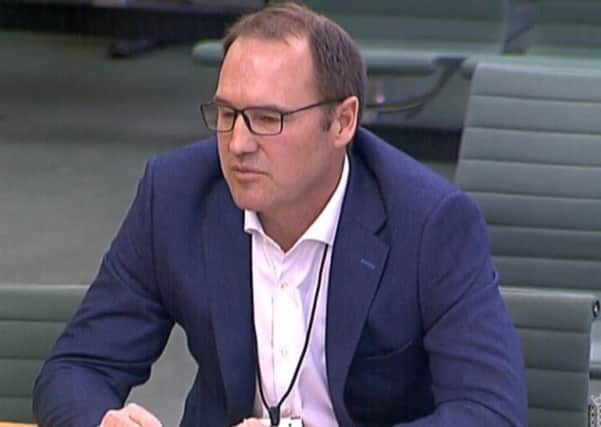Poultry giant Moy Park does new RHI U-turn, admitting it benefited


Two years ago the then-Moy Park chief executive Janet McCollum denied that the multinational company had made money from the ‘cash for ash’ scheme.
In a written statement to the public inquiry into the scandal, she said: “Moy Park has not indirectly earned any RHI scheme tariff income.”
Advertisement
Hide AdAdvertisement
Hide AdThen, under forensic questioning when she came before the inquiry, Mrs McCollum reluctantly admitted that Moy Park’s complex pricing structure meant that it had benefited from the subsidy, paying a smaller proportion of its farmers’ heating bills.
However, she denied that was deliberately because the company knew farmers were getting huge subsidies from taxpayers.
But Mrs McCollum’s successor as Moy Park chief executive, Chris Kirke, then submitted a written statement to the inquiry which contradicted that evidence and returned to Mrs McCollum’s original position. He said: “The RHI scheme did not of itself provide any enhanced financial benefits to Moy Park.”
Today senior Moy Park executive Justin Coleman appeared before MPs on the Northern Ireland Affairs Committee which is investigating the retrospective slashing of RHI payments.
Advertisement
Hide AdAdvertisement
Hide AdMr Coleman, the poultry giant’s agri business and live production services director, admitted under questioning from North Down MP Lady Hermon that the company had benefited from RHI.
However, when pressed to quantify that benefit he said it was “very difficult to put a number on it”.
He said that the benefit “could be measured in terms of feed conversion or mortality or average daily gain ... so if a grower [farmer] improves his feed conversion by a point, Moy Park will get half and the grower will keep half, for argument’s sake.
“So it’s very difficult to say RHI would have benefited the grower or Moy Park by X. RHI per se would not have changed the landscape. The heating system [which RHI paid for] would have changed the landscape.”
Advertisement
Hide AdAdvertisement
Hide AdLady Hermon doggedly attempted to establish how much RHI had enhanced Moy Park’s profitability. She put it to him: “I’m sure that somewhere, with the sophistication of Moy Park, that there is a figure as to how well Moy Park did as a result, indirectly, of the RHI scheme.”
Mr Coleman said that “putting a number on one component part ... is very difficult to do”.
He went on to admit that “performance did improve, without a shadow of a doubt”, adding: “I’m not saying that RHI was 100% of the reason for the performance improvement.”
When asked how Moy Park was going to assist those who took its advice to enter RHI and now were in financial difficulty, he said: “In reality, Moy Park’s not going to bail out a failed government scheme.”
Advertisement
Hide AdAdvertisement
Hide AdIan Paisley stressed the importance of Moy Park to the Northern Ireland economy. The North Antrim MP, in whose constituency Moy Park recently cut jobs, highlighted that the company had never given its farmers a guarantee of RHI funding, but instead passed on Stormont’s guarantee.
When asked by Lady Hermon whether Moy Park would stay in Northern Ireland, Mr Coleman said it was “definite ... beyond a shadow of a doubt” that the company would stay where it had been founded.
However, he said that some of Moy Park’s farmers who had huge debts to repay as a result of installing RHI boilers were “not even angry, they’re incredibly worried about the longevity of their businesses”.